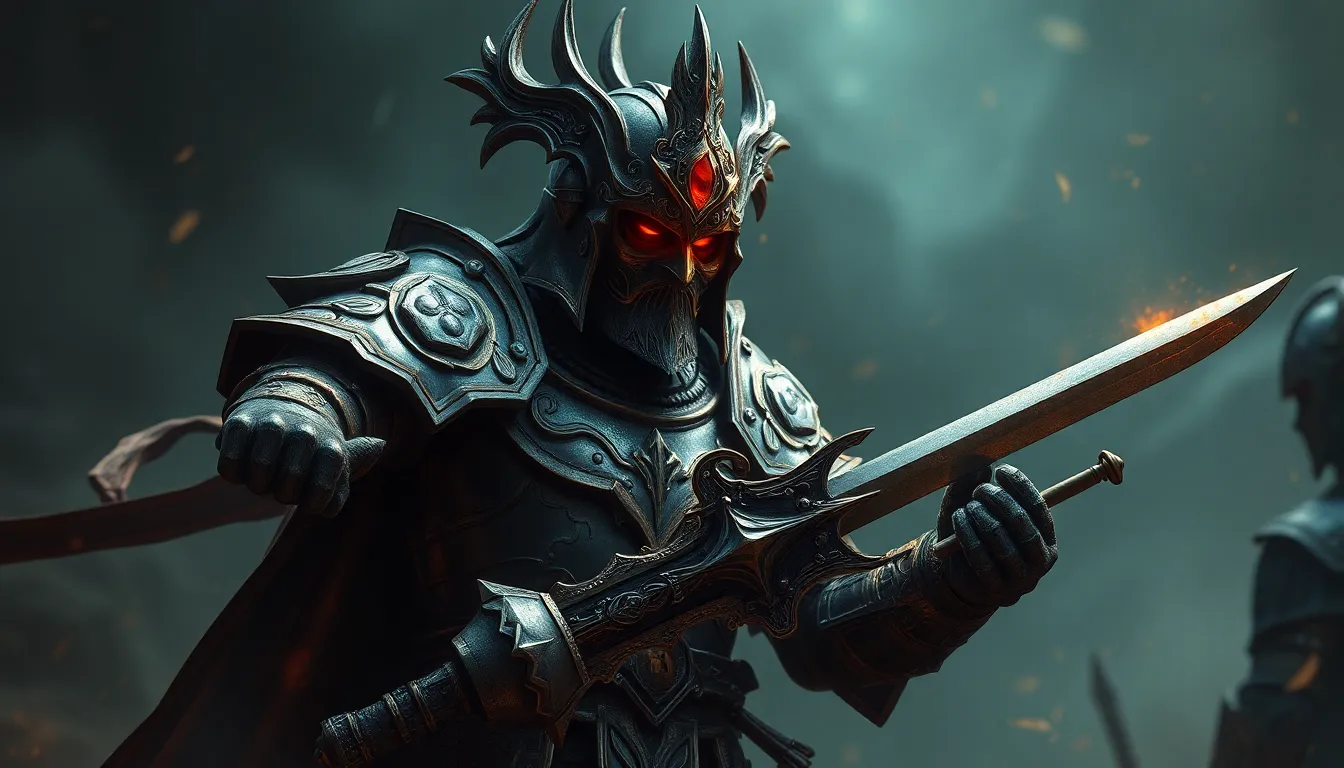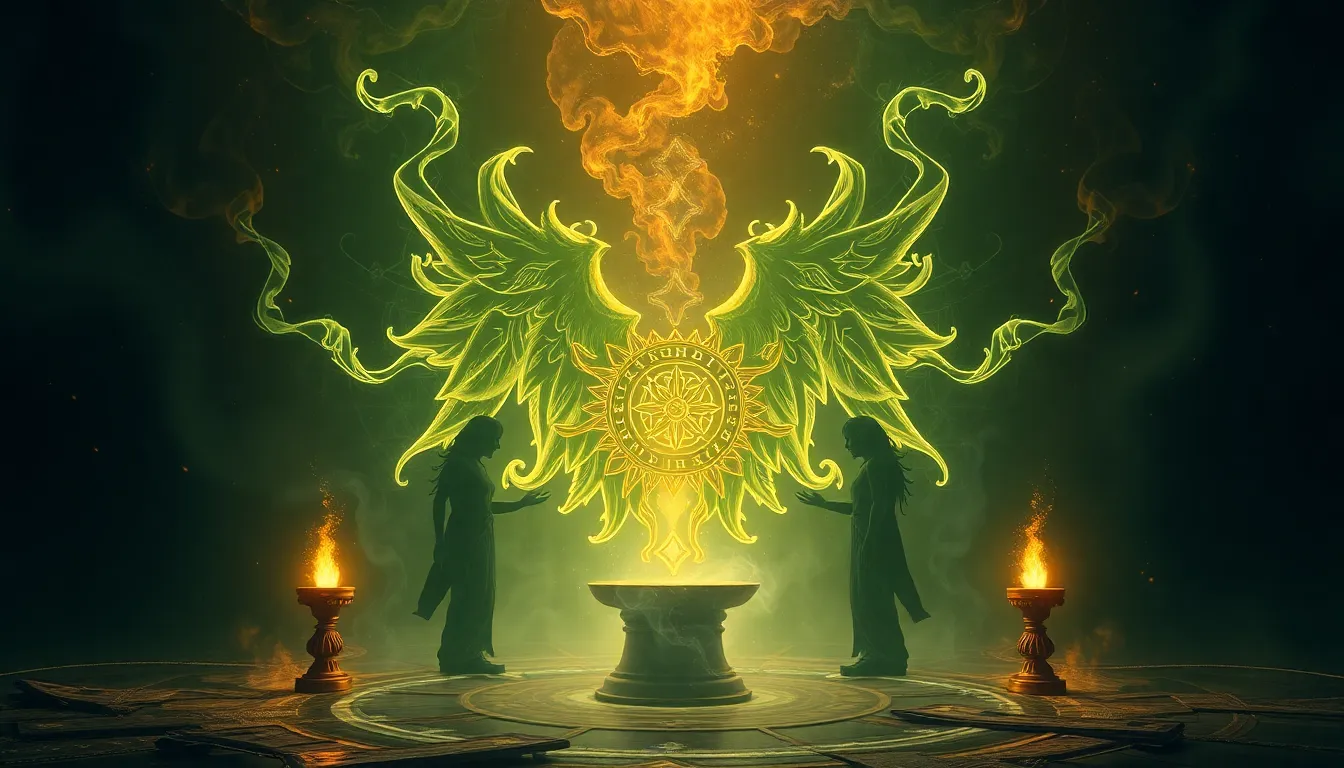Legendary Lovers: The Most Iconic Love Stories from Mythology
Introduction to Mythological Love Stories
Mythology serves as a tapestry of stories woven throughout human history, encapsulating the beliefs, values, and struggles of cultures across the globe. These narratives often reflect the complexities of human experience, particularly the multifaceted nature of love. Love in mythology is a recurring theme, often depicted as a powerful, transformative force that transcends time and space.
Legendary lovers play a crucial role in shaping cultural narratives, providing insight into societal norms, ideals, and the human condition. Their stories resonate with audiences, offering lessons on love, sacrifice, and the trials that often accompany deep emotional connections.
Orpheus and Eurydice: The Power of Music and Loss
The myth of Orpheus and Eurydice is one of love’s most poignant narratives. Orpheus, a gifted musician, falls deeply in love with Eurydice, a beautiful nymph. Their love story takes a tragic turn when Eurydice is bitten by a snake and dies, descending into the underworld. Heartbroken, Orpheus embarks on a perilous journey to retrieve her, using his enchanting music to persuade Hades and Persephone to allow her return.
This myth explores profound themes of love, loss, and the afterlife. Orpheus’s music symbolizes the enduring power of love, capable of softening the hearts of gods and even altering the course of fate. However, the tragic conclusion—where Orpheus looks back at Eurydice before they reach the surface, causing her to vanish forever—serves as a poignant reminder of love’s fragility and the permanence of loss.
Psyche and Eros: Trials of Love and Trust
The story of Psyche and Eros is rich with themes of jealousy, betrayal, and redemption. Psyche, a mortal woman of extraordinary beauty, becomes the object of envy for Venus, the goddess of love. In a bid to ruin her, Venus sends her son Eros to make Psyche fall in love with the vilest creature. However, Eros falls in love with Psyche instead, and they begin a secret relationship.
Psyche’s journey is fraught with trials that test her love for Eros, including tasks imposed by Venus to prove her worthiness. These challenges symbolize the challenges inherent in love: trust, sacrifice, and the need for personal growth. Ultimately, Psyche’s perseverance and Eros’s unwavering love lead to her redemption and transformation into a goddess, highlighting the importance of self-discovery in love.
Tristan and Isolde: A Tale of Forbidden Love
The legend of Tristan and Isolde originates in Celtic mythology and tells of an ill-fated romance between the knight Tristan and the Irish princess Isolde. Their love blossoms after they consume a love potion intended for Isolde and her betrothed, King Mark of Cornwall. This sets the stage for a tragic love affair marked by secrecy, passion, and ultimately, betrayal.
The implications of fate versus choice are central to their story. Despite their deep love for each other, societal constraints and loyalty to King Mark lead to their tragic downfall. The enduring legacy of Tristan and Isolde can be seen in countless adaptations in literature, opera, and other art forms, reflecting the timeless nature of their love and the universal theme of forbidden romance.
Hades and Persephone: The Cycle of Love and Seasons
The story of Hades and Persephone is a rich tapestry of love, loss, and the cyclical nature of life. Hades, the god of the underworld, falls in love with Persephone, the daughter of Demeter, goddess of the harvest. He abducts her to the underworld, leading to Demeter’s grief and the subsequent barrenness of the earth.
This myth symbolizes the changing seasons and the cycles of life and death. Persephone’s eventual return to the surface for part of the year signifies the renewal of life, while her time in the underworld represents the dormancy of winter. Their love, although born from abduction, evolves into a complex relationship that transcends the boundaries of life and death, showcasing the transformative power of love.
Cupid and Psyche: Love’s Journey through Adversity
Cupid and Psyche’s story parallels that of Eros and Psyche, adding layers to the myth of love overcoming adversity. Cupid, the god of desire, falls in love with Psyche but keeps his identity a secret. Psyche’s curiosity leads her to betray Cupid’s trust by looking upon him while he sleeps, resulting in his departure.
Their journey illustrates love’s trials, with Psyche undertaking daunting tasks to win back Cupid’s affection. This narrative emphasizes that love often requires patience, understanding, and personal growth. Psyche’s transformation throughout her challenges highlights the importance of self-discovery and resilience in nurturing love.
Lancelot and Guinevere: Chivalry, Betrayal, and Tragedy
The affair between Lancelot and Queen Guinevere is a cornerstone of Arthurian legend, exploring themes of honor, loyalty, and tragic love. Lancelot, the greatest knight of King Arthur’s Round Table, falls in love with Guinevere, Arthur’s wife. Their love is marked by secrecy and guilt, leading to a tragic unraveling of relationships and the kingdom itself.
This tale examines the moral implications of love entangled with duty and loyalty. The betrayal of King Arthur ultimately leads to the downfall of Camelot, underscoring how love can have far-reaching consequences, both personal and societal. The tragedy of Lancelot and Guinevere’s love serves as a cautionary tale about the complexities of love and loyalty.
The Story of Shiva and Parvati: Divine Love and Devotion
In Hindu mythology, the courtship of Shiva and Parvati exemplifies divine love and devotion. Parvati, the reincarnation of Sati, is determined to win Shiva’s heart, despite his ascetic lifestyle and initial indifference. Her patience and unwavering devotion ultimately lead to their union, symbolizing the balance of opposites.
Their love story emphasizes themes of devotion, patience, and the spiritual journey toward union. Parvati’s determination to win Shiva’s love illustrates the transformative power of love, which transcends mere attraction and delves into the realm of spiritual connection. Their relationship is celebrated in Hindu beliefs, showcasing the importance of love in achieving spiritual fulfillment.
Eros and Psyche: The Importance of Self-Discovery in Love
The story of Eros and Psyche delves deeper into the concept of self-discovery within love. Eros, as the god of love, represents the intoxicating and sometimes irrational nature of love. Psyche’s journey through trials not only tests her love for Eros but also forces her to confront her insecurities and desires.
Their relationship highlights the necessity of personal growth in understanding love. Psyche’s transformation from a curious mortal to a goddess reflects the idea that true love involves self-acceptance and realization of one’s worth. This theme resonates with many, illustrating that love is not just about finding another but also about finding oneself.
![]()


